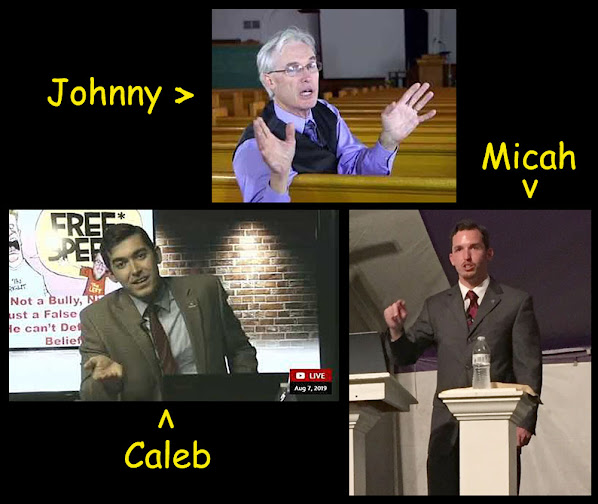Pale Blue Dot
When I was a young Christian, so many years ago, I ignored Dr. Carl Sagan, the American astronomer. He knew things and said things that conflicted with my fundamentalist Christian beliefs and those conflicts caused some cognitive dissonance. One way to combat cognitive dissonance is to avoid the conflicting information and just don't think about it.
Dr. Sagan died (Dec. 1996) while I was still a Christian, though the seeds of doubt had begun to sprout roots some years earlier and my Christian beliefs had slowly begun to fracture and collapse until finally, in April of 2000 my faith had finally lost it's power over me and had become a small, insignificant pile of memories.
My journal entry from that time:
In a matter of a few hours, the answer to my suffering for the past twenty five years has appeared. I now see with telescopic vision what has been hidden from view by superstition. It’s as if I have been released from leg chains in the hold of an 18th century slave ship and transported to a world of such natural beauty that I can’t find a point to begin observing it for fear that I will miss something in another location. The truth has broke through the thick shroud of old bible leather that has covered my eyes for so long.
There is no god!
Christianity is the biggest fraud that mankind has ever exposed himself to.
The bible is the work of men. It is a mixture of one part fact, to five part fiction.
Science, not religion, is the source of truth in the world.
The guilt, self doubt, and worry that plagued nearly every waking moment of my life for the past twenty five years, has been replaced with a new wonder, a sense of adventure, and a freedom that can only be had when one is no longer shackled to a belief system that threatens to punish you for every human thought, word, or deed.
There is no heaven, no hell, only birth, and death, and what ever I can learn, enjoy, and contribute in between.
"Look again at that dot. That's here. That's home. That's us. On it everyone you love, everyone you know, everyone you ever heard of, every human being who ever was, lived out their lives. The aggregate of our joy and suffering, thousands of confident religions, ideologies, and economic doctrines, every hunter and forager, every hero and coward, every creator and destroyer of civilization, every king and peasant, every young couple in love, every mother and father, hopeful child, inventor and explorer, every teacher of morals, every corrupt politician, every "superstar," every "supreme leader," every saint and sinner in the history of our species lived there--on a mote of dust suspended in a sunbeam."
"The Earth is a very small stage in a vast cosmic arena. Think of the rivers of blood spilled by all those generals and emperors so that, in glory and triumph, they could become the momentary masters of a fraction of a dot. Think of the endless cruelties visited by the inhabitants of one corner of this pixel on the scarcely distinguishable inhabitants of some other corner, how frequent their misunderstandings, how eager they are to kill one another, how fervent their hatreds."
"Our posturings, our imagined self-importance, the delusion that we have some privileged position in the Universe, are challenged by this point of pale light. Our planet is a lonely speck in the great enveloping cosmic dark. In our obscurity, in all this vastness, there is no hint that help will come from elsewhere to save us from ourselves."
"The Earth is the only world known so far to harbor life. There is nowhere else, at least in the near future, to which our species could migrate. Visit, yes. Settle, not yet. Like it or not, for the moment the Earth is where we make our stand."
"It has been said that astronomy is a humbling and character-building experience. There is perhaps no better demonstration of the folly of human conceits than this distant image of our tiny world. To me, it underscores our responsibility to deal more kindly with one another, and to preserve and cherish the pale blue dot, the only home we've ever known."
— Carl Sagan, Pale Blue Dot, 1994
All of a sudden, Dr. Sagan was not a man to be feared and ignored. Even though he was gone, his voice and his books were easily accessible, and even more so now, 22 years after I became an atheist.
But what I most treasure from him is this one single tribute to science, history, and humanity. It is short, concise, comforting, and perhaps distressing (depending on your perspective).
From Wikipedia:
Pale Blue Dot is a photograph of planet Earth taken on February 14, 1990, by the Voyager 1 space probe from a record distance of about 6 billion kilometers (3.7 billion miles), as part of that day's Family Portrait series of images of the Solar System.
In the photograph, Earth's apparent size is less than a pixel; the planet appears as a tiny dot against the vastness of space, among bands of sunlight reflected by the camera.
Voyager 1, which had completed its primary mission and was leaving the Solar System, was commanded by NASA to turn its camera around and take one last photograph of Earth across a great expanse of space, at the request of astronomer and author Carl Sagan. The phrase "Pale Blue Dot" was coined by Sagan in his reflections on the photograph's significance, documented in his 1994 book of the same name.
If you have never read this, listened to it, or watched it, I recommend it as a regular meditation from time to time.
"Look again at that dot. That's here. That's home. That's us. On it everyone you love, everyone you know, everyone you ever heard of, every human being who ever was, lived out their lives. The aggregate of our joy and suffering, thousands of confident religions, ideologies, and economic doctrines, every hunter and forager, every hero and coward, every creator and destroyer of civilization, every king and peasant, every young couple in love, every mother and father, hopeful child, inventor and explorer, every teacher of morals, every corrupt politician, every "superstar," every "supreme leader," every saint and sinner in the history of our species lived there--on a mote of dust suspended in a sunbeam."
"The Earth is a very small stage in a vast cosmic arena. Think of the rivers of blood spilled by all those generals and emperors so that, in glory and triumph, they could become the momentary masters of a fraction of a dot. Think of the endless cruelties visited by the inhabitants of one corner of this pixel on the scarcely distinguishable inhabitants of some other corner, how frequent their misunderstandings, how eager they are to kill one another, how fervent their hatreds."
"Our posturings, our imagined self-importance, the delusion that we have some privileged position in the Universe, are challenged by this point of pale light. Our planet is a lonely speck in the great enveloping cosmic dark. In our obscurity, in all this vastness, there is no hint that help will come from elsewhere to save us from ourselves."
"The Earth is the only world known so far to harbor life. There is nowhere else, at least in the near future, to which our species could migrate. Visit, yes. Settle, not yet. Like it or not, for the moment the Earth is where we make our stand."
"It has been said that astronomy is a humbling and character-building experience. There is perhaps no better demonstration of the folly of human conceits than this distant image of our tiny world. To me, it underscores our responsibility to deal more kindly with one another, and to preserve and cherish the pale blue dot, the only home we've ever known."
— Carl Sagan, Pale Blue Dot, 1994
Dr. Sagan's words in motion:
Perhaps another short video, driving home a truth of the importance of perspective:
Still don't get it? Watch this:
The next time you are craving a little perspective, just watch these videos again, and again.
bob
r.u.reasonable@gmail.com




Comments
Post a Comment